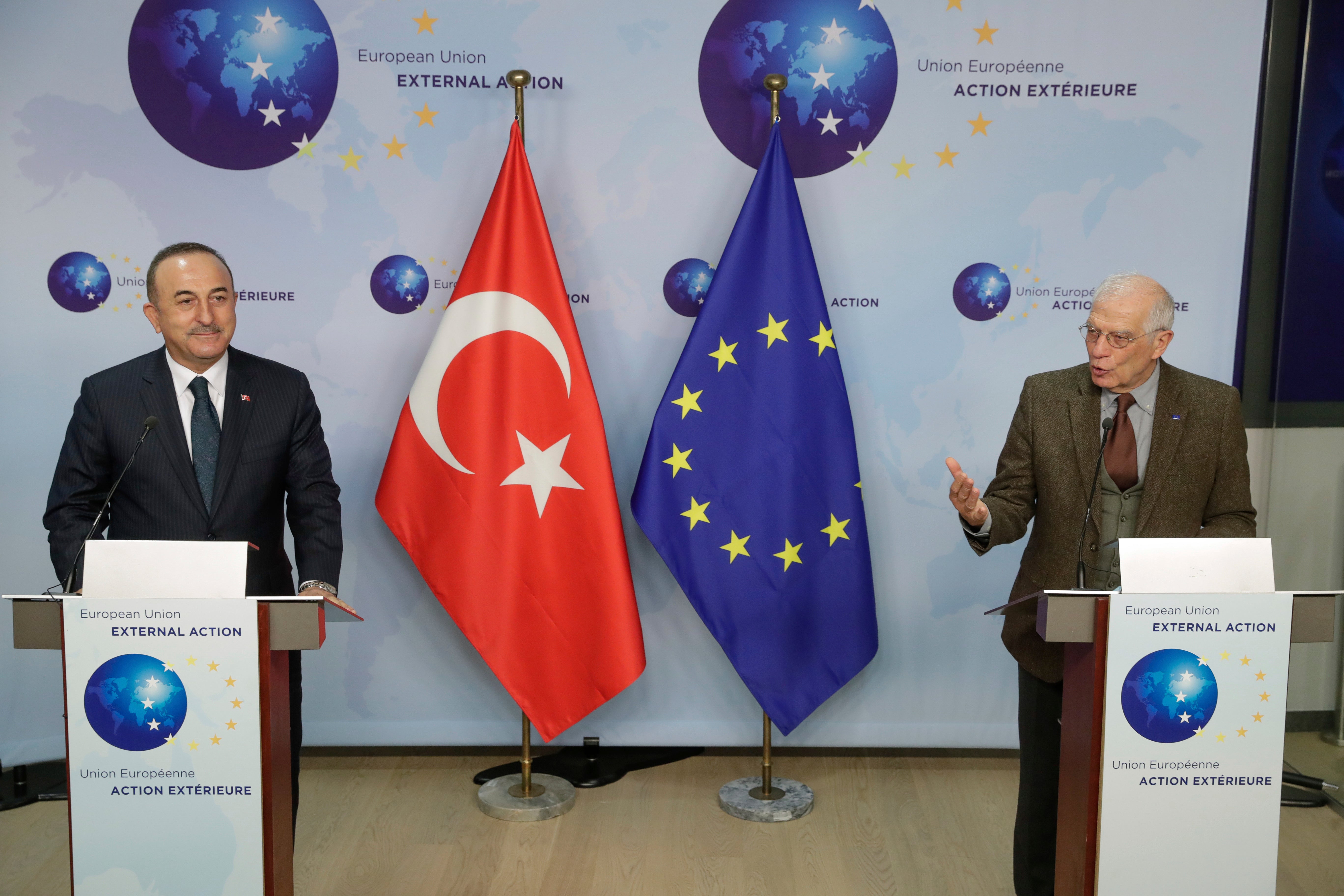Turkey launches charm offensive to ease tensions with EU
Turkey is launching a new effort to improve strained ties with the European Union

Your support helps us to tell the story
From reproductive rights to climate change to Big Tech, The Independent is on the ground when the story is developing. Whether it's investigating the financials of Elon Musk's pro-Trump PAC or producing our latest documentary, 'The A Word', which shines a light on the American women fighting for reproductive rights, we know how important it is to parse out the facts from the messaging.
At such a critical moment in US history, we need reporters on the ground. Your donation allows us to keep sending journalists to speak to both sides of the story.
The Independent is trusted by Americans across the entire political spectrum. And unlike many other quality news outlets, we choose not to lock Americans out of our reporting and analysis with paywalls. We believe quality journalism should be available to everyone, paid for by those who can afford it.
Your support makes all the difference.Turkey on Thursday launched a new effort to get its strained relations with the European Union back on track, as the country’s foreign minister visited Brussels looking to talk about migration and plan a series of high-level talks with the 27-nation bloc.
Turkey has been a candidate to join the EU for more than 15 years, but its membership quest is at a standstill. Tensions are high over Ankara’s role in the conflicts in Syria and Libya, the divided island of Cyprus — an EU member country — and its energy exploration in the Mediterranean Sea.
But the EU relies heavily on Turkey to stop migrants from entering its borders. Well over 1 million people entered Europe in 2015, most of them Syrian refugees landing in the Greek islands, sparking a major political crisis. The EU has paid billions of euros in refugee support for Ankara to halt the flow, and it has worked.
At a meeting with EU foreign policy chief Josep Borrell, Foreign Minister Mevlut Cavusoglu said they would discuss a joint “migration declaration” that Turkey is proposing and prepare for a conference on developments in the eastern Mediterranean, where Turkish and Greek warships have faced off.
“We will also tackle important issues such as visa liberalization, modernization of the Customs Union and other concrete steps which will build the future of Turkey and EU together,” Cavusoglu said, referring to other incentives the EU has offered Ankara if it prevents migrants leaving for Europe.
Already last month, the EU said it plans to spend around 485 million euros ($590 million) over the next year helping refugees living in Turkey, by providing cash assistance to people to meet their basic needs and money transfers to help educate children.
Turkey is home to almost 4 million refugees. Around 70% of them are women and children and the overwhelming majority of people live outside migrant camps.
Cavusoglu conceded that “2020 was a problematic year” for EU-Turkey ties. He said it’s important now “to create a positive atmosphere and a positive agenda. But in order for that agenda to be sustainable. We need concrete steps by both sides.”
Borrell noted a recent “improvement in the overall atmosphere,” including an agreement on talks between Ankara and Athens, and he said that boosting flagging EU-Turkey ties is of “mutual strategic interest.” Their meeting was also aimed at setting up a visit to Turkey by top EU officials.